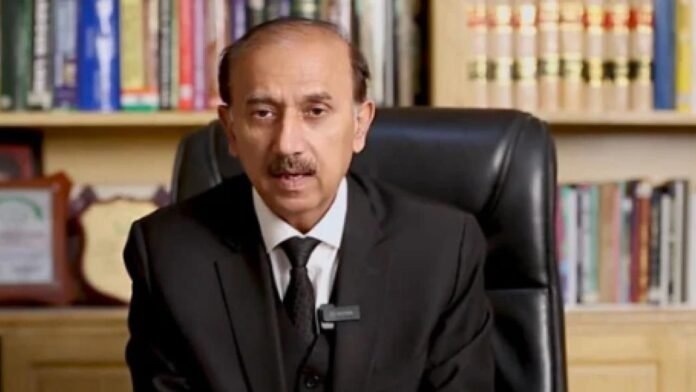The police have also added charges of attempted murder and robbery to the case of the protest outside the National Press Club.
Due to the demonstration in front of the National Press Club, a case has been filed against Shoaib Shaheen and 80 PTI employees in Islamabad, the federal capital, under the Anti-Terrorism Case Act. The federal police have made ten arrests in this case, according to specifics. The case will be sent to CTD Islamabad. The case was reported at Kohsar police station on complaint of police, including charges of attempted murder and robbery. The text of the case states that protesters snatched a tear gas gun from an officer and pushed him around. Protesters tore the uniform of the sub-inspector and snatched a tear sheet from another officer. They blocked the road, due to which traffic stopped and violated Section 144, which prohibits public gatherings.
Federal Police have decided to tighten the noose around PTI leaders. Authorities have prepared a list of cases filed against the PTI founder and other leaders. In Islamabad, they have registered 42 cases against Imran Khan, and he has not secured bail in 19 cases. At the same time, Shah Mahmood Qureshi has yet to secure bail in 3 out of 16 instances. Authorities have three cases against Hammad Azhar, but he has not secured bail. They have declared him an absconder in one case. Increasing legal pressure reflects the government’s strategy to curtail PTI’s activities through legal means.
According to a report, former federal minister Murad Saeed is an absconder in one Terrorism Case. He has not secured bail in two out of eight cases against him. Retired Speaker of the National Assembly Asad Qaiser has not secured bail in four cases, while Ali Nawaz Awan has yet to secure bail in five. Police want Asad Umar, who stepped back from politics, in three cases while he has twenty-one cases against him. Similarly, authorities have named Khyber Pakhtunkhwa Chief Minister Ali Amin Gandapur in eighteen cases registered in different police stations. He has secured bail in all but two instances against PTI leaders, indicating a wide-ranging and systematic legal crackdown on the party.
On the other hand, authorities have indicted 28 PTI leaders for giving inflammatory speeches about the government and institutions. The charges include inciting public disorder and rebellion against the state. The charges suggest an attempt to curb dissent and maintain public order by targeting key opposition figures.
Sources indicated that Levies officer Abdul Ghani registered the sedition case at the Boston police station. The Terrorism Case names provincial leader Sharif Tokhi, absconder Abdul Bari Kakar, and Jahangir Rind, among others. The text reveals that PTI leaders wrote anti-state slogans and made provocative speeches against the state and institutions. Which falls under inciting the public, spreading disorder, and rebellion. This le to an investigation against the accused, showing the state’s commitment to addressing. What it perceives as threats to its stability and authority.
The comprehensive legal actions against PTI leaders highlight the increasing tensions between the government and the opposition. These actions aim to address immediate unrest incidents and undermine PTI’s ability to mobilize effectively and challenge the current administration. The longing crackdown indicates the government’s resolve to maintain control and stability in the face of growing political opposition.


